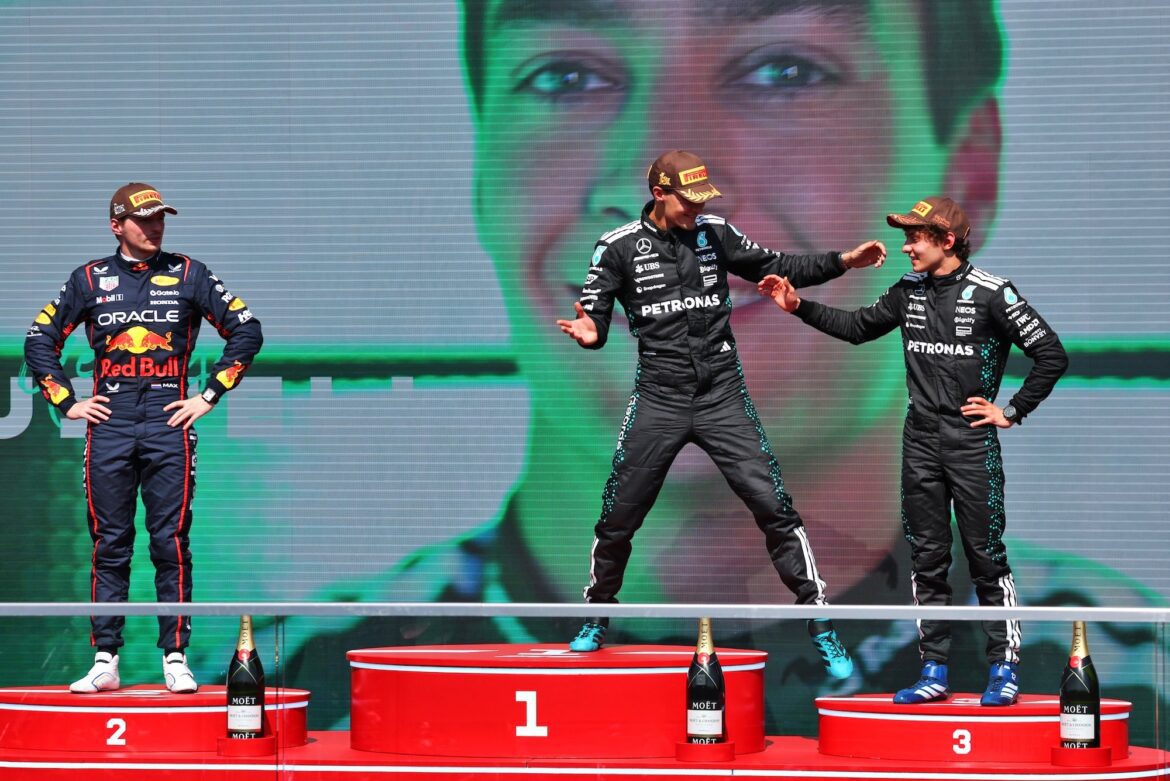Mercedes’ Cautious Optimism Following Canadian Grand Prix Success
In the recent Formula 1 Canadian Grand Prix, the Mercedes team showcased a remarkable performance, highlighted by George Russell’s victory and Kimi Antonelli’s impressive third-place finish. Despite celebrating this success, Toto Wolff, the team principal, opted for a measured tone, emphasizing the unpredictable nature of the sport. He expressed that while the results in Montreal were encouraging, there is no assurance that this level of performance will be sustained in the upcoming races.
The Performance Breakdown in Montreal
George Russell’s triumph at the Canadian Grand Prix was not just a stroke of luck; it was a result of strategic planning and execution. Securing pole position allowed Russell to dominate the race, further solidified by achieving the fastest lap. This performance underscores the competitive edge that Mercedes has been striving to reclaim following a challenging period in their racing history.
Kimi Antonelli, finishing third, made headlines by securing his first podium in Formula 1. At just 18 years old, he became the third youngest driver to achieve such an accolade, marking a significant milestone for both him and the team. His achievement also holds historical significance, as he is the first Italian driver to reach the podium since Jarno Trulli in 2009, reviving Italian pride in the sport.
A Cautious Approach to Future Races
Despite the jubilant atmosphere following the race, Wolff remained cautious. He highlighted the inherent variability in performance across different tracks. “I am never overly confident, as performance fluctuations can still occur,” he explained to reporters. Wolff recalled the previous season’s inconsistencies, where certain tracks saw Mercedes dominate while others left them struggling to find their footing.
With the next race set to take place in Austria, Wolff stressed the importance of maintaining focus. He remarked, “Austria will present a completely different set of challenges. Our attention is now fully on the Austrian Grand Prix. We have completed Canada and are moving forward.” This statement reflects a strategic mindset that prioritizes preparation and adaptability over complacency.
Historical Context and Lessons Learned
Wolff’s caution is informed by the team’s experiences from the previous season, where they enjoyed a string of successes at tracks like Spielberg, Silverstone, and Spa. These victories were often aided by external factors, such as incidents between rival drivers. The unpredictable nature of racing means that past successes can’t guarantee future results.
The team principal’s acknowledgment of the need for a grounded approach is significant, especially as the championship enters a critical phase. With the stakes higher than ever, the pressure to maintain competitive performance intensifies. Wolff’s commitment to a diligent work ethic reflects the reality that every race presents unique challenges that require continuous adaptation.
Focused on the Road Ahead
Looking ahead, Mercedes is aware that each circuit presents different characteristics that can significantly impact their performance. The team’s engineering and strategy departments must work in tandem to fine-tune their approach for each race. Wolff’s statement about needing to "keep our feet on the ground" serves as a reminder that success in Formula 1 is not just about speed but also about strategic planning and execution.
The upcoming race in Austria will test the team’s ability to adapt quickly to a different track layout and conditions. Each race weekend offers a fresh opportunity for teams to showcase their capabilities while also learning from their past performances. For Mercedes, the goal is to solidify their resurgence in the championship standings while navigating the complexities of the competitive landscape.
Conclusion: The Ongoing Journey
As the season progresses, Mercedes will continue to evaluate their strategies and performance metrics. The lessons learned from both successes and setbacks will be integral in shaping their approach to each race. The competitive nature of Formula 1 demands constant vigilance and adaptability, and Wolff’s leadership will play a crucial role in guiding the team through the challenges ahead.
The excitement surrounding the Canadian Grand Prix success is tempered by the realization that the journey is far from over. With every race, the team aims to build on their strengths while addressing areas that require improvement. The narrative of perseverance and resilience is central to Mercedes’ ongoing quest for excellence in Formula 1, and as they move forward, all eyes will be on them to see how they navigate the twists and turns of the championship season.
